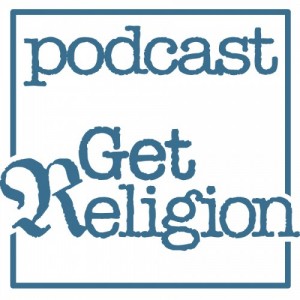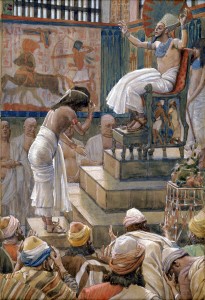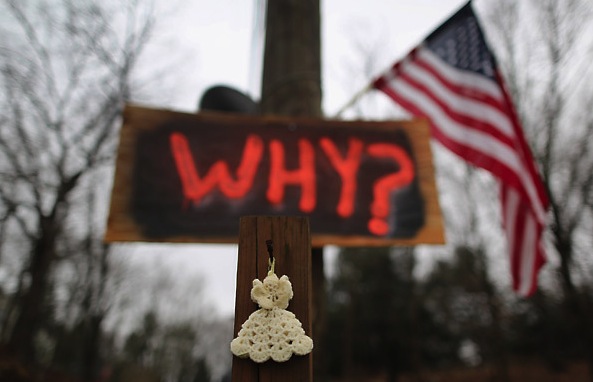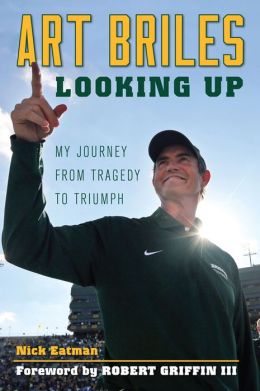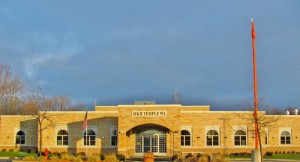Last updated on: October 25, 2012 at 9:01 am
By
mollie
The whole point of this website, since day one, has been to help mainstream journalists “get religion.” So I guess I should not be utterly disgusted and disappointed by so many reporters’ coverage of the big Richard Mourdock-theodicy kerfuffle right now. Instead I should view this as a great teaching opportunity.
Every educated person should know the fundamentals of the major world religions. Every American journalist should have a working knowledge of the basics of Christian and Jewish thought.
So everyone open your Bibles and go to Genesis. We’re hoping to end up around Genesis 50:20. In the preceding chapters, we learn about Joseph, one of Jacob’s 12 sons. His brothers really hated him and were filled with jealousy so they conspired to kill him before deciding instead to sell him into slavery. Jacob, believing Joseph had been killed, was left in anguish and grieving.
Joseph somehow becomes the most powerful man in Egypt next to Pharaoh. He does all sorts of wise and judicious things and saves all sorts of people from a brutal famine. Long story short, he ends up meeting up with his long-lost brothers again. They are really worried that he’s going to react poorly. And so:
But Joseph said to them, “Do not fear, for am I in the place of God? As for you, you meant evil against me, but God meant it for good, to bring it about that many people should be kept alive, as they are today. So do not fear; I will provide for you and your little ones.” Thus he comforted them and spoke kindly to them.
“As for you, you meant evil against me, but God meant it for good” is one of the most well-known passages in Scripture. The teaching that God causes good to result from evil is just basic, basic, basic stuff.
You don’t have to agree with this verse if you’re a reporter, but you should be familiar with it. If you are a reporter and you’re not familiar with the story of Joseph, or the story of Job, or the story of Jesus, you may be surprised at how easy they are to quickly catch up on. I’m not saying you’ll be able to plumb the depths in an evening, but just read Genesis, read Job, read the Gospels. These are foundational to understanding how the vast majority of the people you cover understand God’s will. With further study, you may learn about how Jews and Christians have struggled with understanding God’s will over the millennia. Turns out there is a lot written about it. Books, papers, you name it.
And here’s another thing: Meet someone who identifies as pro-life and ask them a few questions. You may learn that they believe all human life is equally valuable and sacred. You might learn that they affirm that human life begins at conception. You might learn that they really abhor the taking of human life, even at its earliest stages. You might learn that they’ve grappled with “the difficult cases” — whether unborn children should be protected if the circumstances of their conception involved rape or incest, whether unborn children should have any rights if their mother’s life is in danger. You might learn that there are different approaches to how they wrestle with these cases.
If you do these two things — bone up on just the very lowest level basics of Christian teaching on theodicy and meet a pro-lifer and find out what they really think — you might not lead your newscasts with a mangling of the news that some pro-lifers really believe (gasp!) that the circumstances of your conception and birth do not determine your worth and that every single child in the world is created and loved by God. You might learn about this newfangled ancient teaching that God causes good to result from evil.
I want to make it clear that if Democrats want to claim that Mourdock said God intends rape or that he didn’t say it was tragic, that’s their business. We have two weeks to go until election and people are getting a bit antsy. But reporters need to separate themselves from their deeply held ideological leanings and just report. There were bad things, such as the Huffington Post lying by saying that Mourdock told voters that God intends rape.
The Washington Post‘s Jennifer Rubin explained to reporters (who she suspected of partisan outrage on this story):
The essence of religious monotheism is that everything comes from one God, which naturally leaves humans befuddled when “Bad things happen to good people.” The faithful nevertheless persevere in their faith, believing that God is unknowable to human minds. This is the essence, for example, of the Book of Job, which I felt compelled to reread this afternoon. (It is a deeply disturbing story precisely because it raises these fundamental issues about the nature of God, good and evil, etc.)
At Business Insider, a reporter said this story exemplifies what she hates about media coverage of abortion:
Anyone is free to disagree with Mourdock’s position — and to make him explain and defend it — but the media’s surprise and outrage, disguised under the mask of “journalistic objectivity,” is disingenuous and irresponsible.
We all saw the biased coverage yesterday, the curious decision by the media to drum up outrage about Mourdock’s comments while downplaying other gigantic stories. “Abortion distraction for Romney,” said the CNN chyron at one point — precisely as it attempted to achieve just that. You really must read Andrew Ferguson’s attack on such journalism:
The Heisenberg Principle of Journalism puts the lie to all that. You see it at work whenever a news anchor announces that “this story just refuses to go away” or a headline writer insists that “questions continue to be raised” about the conduct of one hapless public figure or another.
The story refuses to go away, of course, because the anchor and his colleagues won’t let it; and the questions that continue to be raised are being raised by the headline writer and his editors. Reporters create more news than anybody, just by pretending they’re watching it unfold.
My favorite were the “stories” that said “Romney campaign says he still supports Mourdock, won’t ask Indiana Senate candidate to pull ad.” Do you have to be a willful partisan to take that approach to writing a story? (“Still supports” a consistent pro-lifer? You don’t say!) Or do you just have to not know that Americans views on abortion aren’t perfectly mirrored in the narrow confines of your newsroom? There were others all tied to the idea that Mourdock needed to apologize for his remarks. Mourdock’s views on abortion are less extreme — relative to the American population — than Barack Obama’s, which include thrice voting to keep a form of infanticide legal. When was the last time you saw a reporter suggest that Obama needed to do anything other than celebrate his views?
Like I said, we’re close to the election and that means that journalists struggle even more with keeping their political views in check. We’re human.
But since the forces in favor of aborting the products of rape have been overly represented in the last couple of days, let’s think of some good ideas for media coverage.
For instance, how about talking to any of the many fellow humans in our midst who are products of rape. They don’t have to be famous like Eartha Kitt was or like one of Angelina Jolie’s adopted daughter is or like Martin Sheen’s wife Janet. They might be just the normal people in our newsrooms, in our churches. We saw journalists make hay of the idea that God intended for them to be born and that their lives are gifts from God. Would we do that if they were in front of us?
Do Mourdock’s political opponents — up to and including President Obama — believe that these lives are not a gift from God? Do they believe that God didn’t intend for them to be born? Would stories framed that way lead the morning and nightly news? If they wouldn’t (and to be sure, I’m speculating about a fantasy world where all candidates are asked the same questions that consistent pro-life candidates are), what does that say about the news judgment displayed thus far? Are discussions of theodicy to be trifled with, mangled, used for partisan purposes? Are they maybe a bit more sensitive than the media outlets were letting on?
Painting via Wikipedia.


